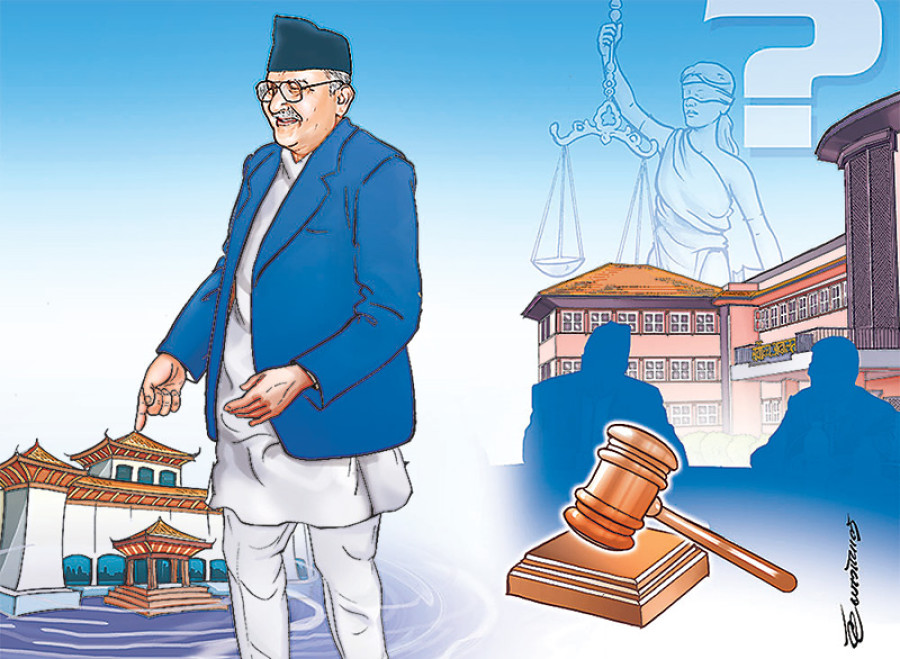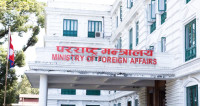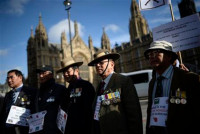National
House dissolution: Final hearing begins today with arguments in favour of writ petitioners
The supremacy of the constitution is at stake and it is up to the five-member Constitutional Bench to safeguard constitutionalism and set a good precedent, experts say.
Binod Ghimire
The stage is set for the Constitutional Bench of the Supreme Court to begin hearing arguments against and in favour of the dissolution of the House of Representatives.
The Office of the President, the Prime Minister’s Office and the Office of the Speaker of the House of Representatives have furnished written replies as the Constitutional Bench directed them on December 25 after its first sitting to hear on the 13 writs filed against the dissolution.
“The hearing on the 13 writs against the dissolution of the House of Representatives will begin on Wednesday in the Constitutional Bench,” Kishor Poudel, communication expert at the Supreme Court, told the Post.
On December 25, after a preliminary hearing, the Constitutional Bench said that hearing would be continuous from Wednesday.
Generally, the Constitutional Bench sits twice a week on Wednesdays and Fridays.
“It is possible that, given the gravity of the issue, the hearing will continue every day,” Poudel said.
According to the Supreme Court administration, there are three groups of lawyers taking part in the hearing.
The Constitutional Bench will first hear the arguments by over two dozen lawyers on behalf of the plaintiffs in the 13 writs claiming that the December 20 dissolution by President Bidya Devi Bhandari on the recommendation of Prime Minister KP Sharma Oli’s Cabinet was unconstitutional.
Then will be the turn to put forth the case of the defendants—the Office of the President and the Prime Minister’s Office. The Attorney General’s Office will lead this argument and it is understood that Attorney General Agni Kharel himself is defending the government’s move. He will be aided by private lawyers too.
Finally, senior advocates selected for the amicus curiae, or friends of the court, will give their opinion on the case.
“The amicus curiae doesn’t need to give a uniform suggestion,” senior advocate Chandra Kant Gyawali, who specialises on constitutional law, told the Post. “Every member is free to give an individual opinion. However, they are expected to give a neutral opinion without taking any side.”
The five members of the amicus curiae represent Nepal Bar Association and the Supreme Court Bar Association.
Following the arguments of the lawyers, the Constitutional Bench will give its ruling whether Oli’s move was constitutional or not.
The choice of the four members in the Constitutional Bench, announced on December 25, ran into controversy because the ones that Chief Justice Cholendra Shumsher Rana, who heads the five-member bench, chose were not the senior most on the roster of the 14 Supreme Court justices selected by the Judicial Council who can be picked for the bench.
According to Article 137 (1) of the constitution, Constitutional Bench hears and decides the disputes over the jurisdiction between the federation and province, between provinces, between a province and a local local level. Article 137 (3) authorises the chief justice to allocate the cases under consideration at Supreme Court containing questions of serious constitutional explanation to the Constitutional Bench.
Some advocates, including the plaintiffs, have been demanding that the issues of such gravity need to be decided by the extended full bench comprising 9 or 11 justices.
Gyawali, who is advocating on behalf of the plaintiffs, said as the constitution says the Supreme Court is the final interpreter, the five-member Constitutional Bench, which is just a part of the court, shouldn’t be deciding such crucial issues.
According to Poudel, it is up to Chief Justice Rana whether to constitute a new Constitutional Bench replacing the existing members with the justices from the roster of 14. However, the Constitutional Bench needs to decide to send the writs to the extended full bench of the Supreme Court if the case is to be heard by the latter.
“The chances that the justices will be changed are slim,” Poudel said.
As per Article 128 (1), the Supreme Court has the final power to interpret the constitution and laws.
However, Oli in his written reply furnished to the Supreme Court on Sunday said that the dissolution of the House is not even a matter for the judiciary to decide upon as it is a political decision.
Constitutional experts, on the other hand, say it is very much a constitutional issue and needs to be decided on the basis of the constitution.
“If the constitutional provisions are cited while dissolving the House it is clearly a constitutional issue,” said Girish Chandra Lal, former justice at the Supreme Court.
Lal argued that the constitution does not give Oli the right to dissolve the House.
“The Constitution of Nepal clearly says that the House of Representatives can only be dissolved when no parties are in the position to form the government and the single largest party fails to garner the vote of confidence,” said Lal at an interaction held by the Janata Samajbadi Party in the Capital on Tuesday.
“The Supreme Court should issue the ruling based on constitutional provisions. The two state agencies [the Office of the President and the Prime Minister’s Office] had cited Article 76 (1) and (7) and Article 85 (1) for the dissolution.”
While Article 76 (1) talks about the formation of the government, 76 (7) allows the dissolution of the lower house when no party holds a majority and there is no option of forming a coalition government. Article 85 (1) says: “Unless dissolved earlier pursuant to this constitution, the term of the House of Representatives shall be five years.”
Constitutional experts say this is the most important case the Supreme Court is hearing ever since the promulgation of the Constitution of Nepal five years back.
“This is also a test case for the Supreme Court,” Bipin Adhikari, former dean at Kathmandu University School of Law, told the Post. “Everyone is watching how it maintains the supremacy of the constitution. It is now on the Constitutional Bench to safeguard constitutionalism and set a good precedent.”




 11.53°C Kathmandu
11.53°C Kathmandu















